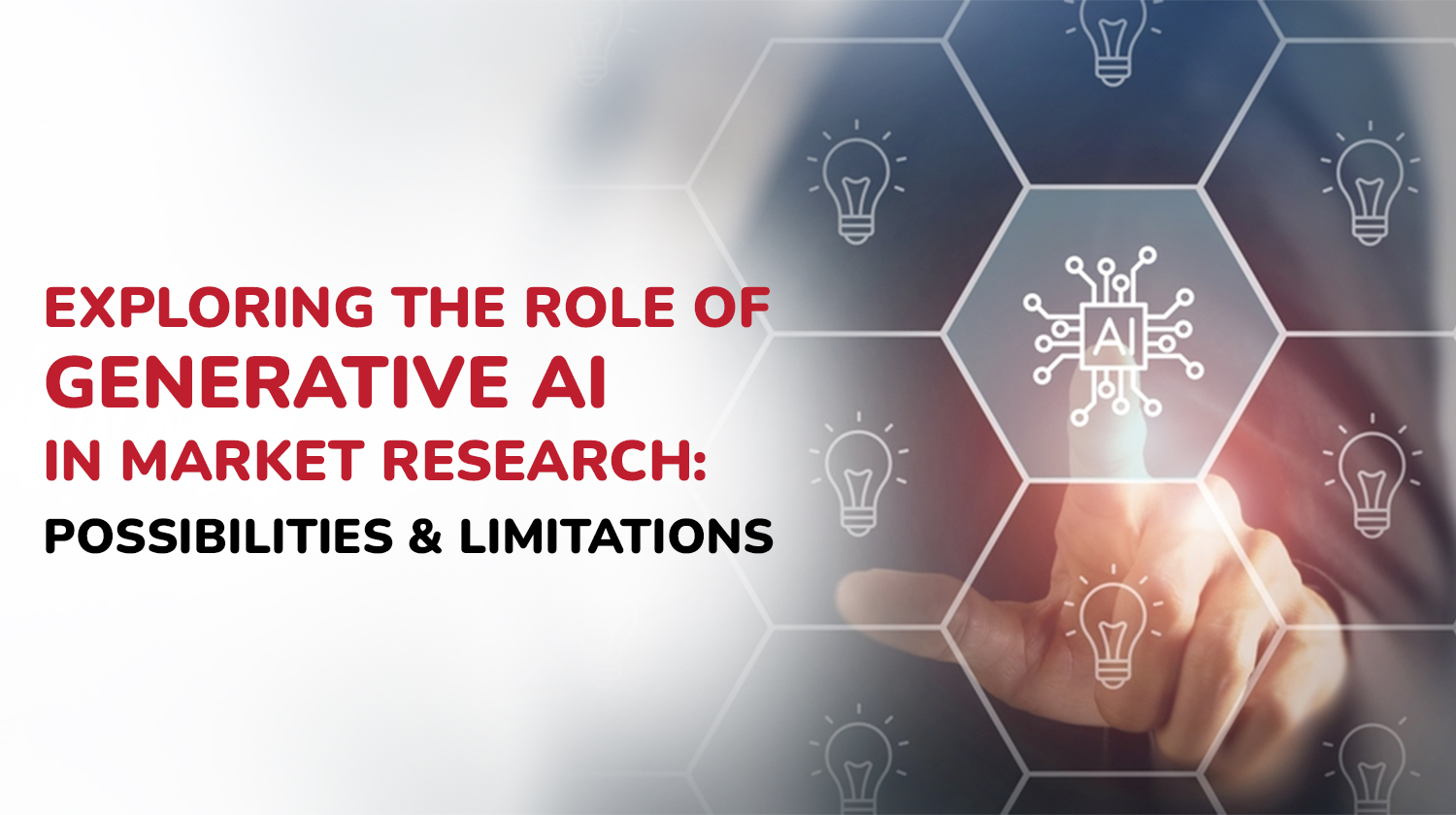
Introduction
In the fast-paced world of business and technology, market research plays a crucial role in helping companies stay competitive. Artificial Intelligence (AI) has brought about transformative changes in various industries, and the field of market research is no exception. Generative AI, in particular, has emerged as a powerful tool in the realm of data analysis and decision-making. This blog explores the applications, capabilities, and limitations of generative AI in market research.
What is Generative AI in Market Research?
Generative AI refers to a class of algorithms that can generate new content, such as images, text, or data, based on patterns and information it has learned from existing data sets. In market research, this technology is applied to analyze vast amounts of data, identify trends, and generate insights that can inform strategic business decisions.
How is AI Used in Market Research?
AI has become a game-changer in market research by automating and enhancing various aspects of the process. Traditional market research methods often involve manual data collection, analysis, and interpretation, which can be time-consuming and subject to human biases. AI streamlines these processes, enabling faster and more accurate results.
AI in market research is employed for tasks such as:
1. Data Collection: AI algorithms can collect and process large datasets from diverse sources, including social media, surveys, and customer feedback.
2. Pattern Recognition: AI tools excel at identifying patterns and trends within datasets, providing deeper insights into consumer behavior and market dynamics.
3. Predictive Analysis: By analyzing historical data, AI can predict future market trends, helping businesses make informed decisions and stay ahead of the competition.
4. Customer Segmentation: AI algorithms can categorize consumers into segments based on their preferences, allowing companies to tailor their marketing strategies more effectively.
5. Sentiment Analysis: AI tools can analyze customer reviews, social media mentions, and other textual data to gauge public sentiment towards a product or brand.
Is Generative AI a Master or Servant of Market Research Analysis?
Generative AI can be seen as both a master and a servant in market research analysis. On one hand, it serves as a powerful assistant, automating tedious tasks and processing vast amounts of data at speeds beyond human capability. This efficiency allows market researchers to focus on higher-level tasks such as strategy development, creativity, and interpretation of results.
On the other hand, generative AI is a tool that relies heavily on the quality and diversity of the data it is trained on. It is not a replacement for human intuition, creativity, and the ability to interpret complex contexts. Market researchers must guide the AI, ensuring that it understands the unique nuances of the industry and business goals.
The Impact of Generative AI Tools on the Marketing Landscape
The integration of generative AI tools in market research has led to several notable impacts on the marketing landscape:
1. Increased Efficiency: AI accelerates data analysis, enabling quicker decision-making and response to market changes.
2. Improved Accuracy: By minimizing human errors and biases, AI contributes to more accurate and reliable market insights.
3. Enhanced Personalization: AI-driven customer segmentation allows businesses to tailor marketing efforts to specific audience segments, leading to more personalized and effective campaigns.
4. Real-time Insights: Generative AI enables real-time analysis of data streams, providing businesses with up-to-the-minute insights into market trends and consumer behavior.
Conclusion
Generative AI has undoubtedly revolutionized market research, providing businesses with powerful tools to navigate the complexities of the modern marketplace. Nonetheless, it is crucial to acknowledge that AI is not a cure-all. Human expertise remains indispensable in overseeing and interpreting the results produced by generative AI tools. As the technology progresses, finding a harmonious equilibrium between AI and human insights will be pivotal in realizing the complete potential of market research in the era of artificial intelligence.








